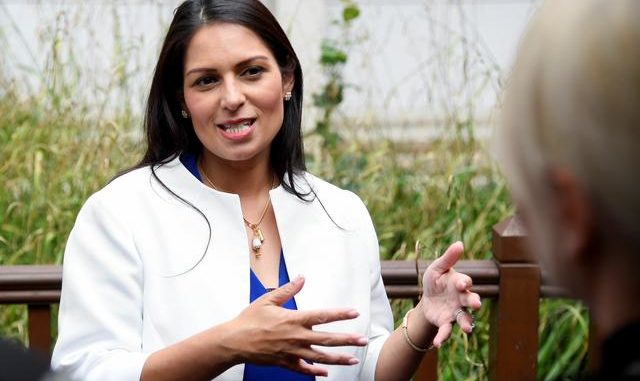
Britain hosted a meeting of senior security ministers from the U.S.-led ‘Five Eyes’ intelligence alliance on Monday for talks on tackling cyber threats ranging from political hacking to child pornography.Britain’s Home Secretary Priti Patel gestures as she speaks during a visit to the West Midlands Police Learning & Development Centre in Birmingham, Britain July 26, 2019. REUTERS/Toby Melville/Pool
British interior minister Priti Patel, appointed last week by British Prime Minister Boris Johnson, hosted the ministerial meeting to focus on emerging threats and how to deal with the “opportunities and risks” posed by new technologies.
Patel said in a statement that specific topics included cyber security, encryption and “online harms”.
“The UK is a global leader on national security and child protection and we are committed to working with our close partners on shared challenges,” Patel said.
According to Patel, at some point governmental participants will attend an industry roundtable to discuss “countering online child sexual exploitation and abuse” which will include discussions with Facebook, Google and Microsoft.
Last year, representatives of social media companies declined government invitations to participate in the same annual conference.
Facebook said it would attend the meeting this week. Google and Microsoft did not immediately respond to requests for comment.
Security ministers from the Five Eyes alliance – Britain, the United States, Canada, Australia and New Zealand – will attend the conference sessions on Monday and Tuesday.
The Five Eyes alliance evolved from a secret World War Two alliance between British and U.S. cypher and code breaking teams.
On Wednesday, top law enforcement officials from the Five Eyes countries, including U.S. Attorney General William Barr and his top national security enforcer, John Demers, will attend a related London meeting.
Recently Barr sparked controversy by suggesting that spy agencies may need new powers to monitor social media activity.
Editing by Guy FaulconbridgeOur Standards:The Thomson Reuters Trust Principles.
LONDON (Reuters) –
